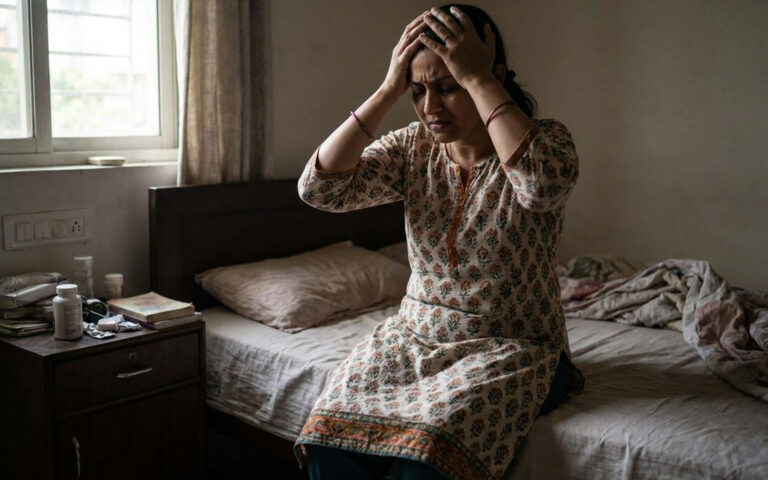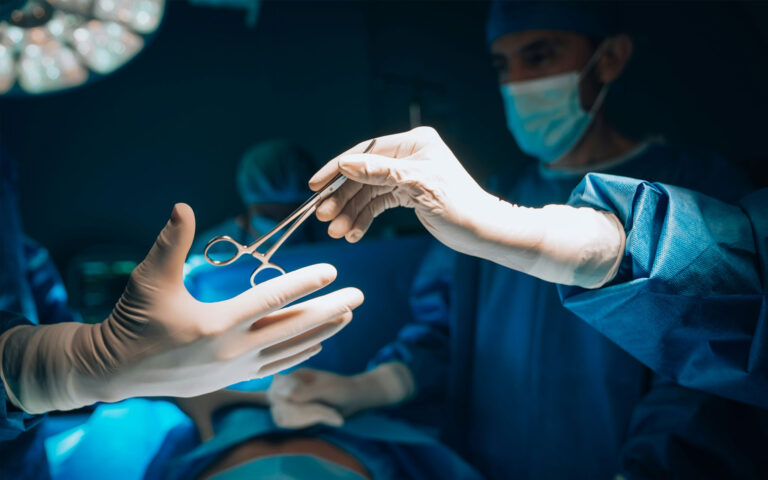Living with endometriosis or adenomyosis is not just about managing pain. It’s about navigating a life that often feels unpredictable – emotionally, mentally, and physically. These conditions don’t only affect the body; they touch every part of who you are.
For me, that truth began long before I had a name for what I was going through. In my teenage years, I often felt trapped in a body that kept turning against me. I had heavy bleeding, unbearable cramps, mood swings, and deep exhaustion. I didn’t understand why I was always in pain, felt extremely weak, or why sadness seemed to linger even when nothing was wrong on the outside. I remember feeling lost, wondering if I would ever live a normal life.
Depression became a shadow that followed me for years. There were days I didn’t want to exist, when the pain felt endless and invisible. I didn’t yet know that the cause was endometriosis. It took more than a decade to finally get that diagnosis of endometriosis. Only recently did I also learn I have adenomyosis, and with that too came both relief and grief – relief in finally having an answer, and grief for all the years lost to not knowing.
As I began to understand endometriosis better, I realized how deeply it connects to mental and emotional health. The body and mind mirror each other. Chronic pain wears you down, physically and emotionally. Fatigue chips away at joy. And the constant dismissal from people who don’t understand what you’re living through adds another layer of hurt.
Over the years, as I started advocating for endometriosis awareness, I also found healing in connection, listening to others’ stories, sharing my own, and slowly learning to rebuild my relationship with my body. That journey inspired me to become a counsellor, to turn lived experience into a form of guidance and support. Through both my training and my own therapy, I learned tools that helped me manage my mental health, regulate stress, and process trauma. Now, I bring that same understanding to others walking a similar path.
Why Counselling Matters in Endometriosis and Adenomyosis
Research shows that people with endometriosis are at higher risk of depression, anxiety, and emotional distress. The daily experience of chronic pain, fatigue, and unpredictable flares can leave you feeling isolated, misunderstood, or even disconnected from your own body.
Counselling goes a long way to ease the journey of chronic illnesses. A good counsellor can help you understand your emotions, help you identify your triggers, and give you tools to deal with the many mental, physical, emotional challenges that endometriosis and adenomyosis throw at you.
For me, counselling became a turning point. It helped me navigate this journey, accept what I was going through, and begin healing from the mental and emotional weight it carried. Through those sessions, I learned how to rebuild my relationships, especially with my family, and to see my pain differently. Counselling taught me how to turn pain into power and that power into purpose. It offered more than just a listening ear; it gave me tools to regulate stress, process medical trauma, and build the resilience needed for the long road ahead.
After seeing firsthand how much counselling helped me, I wanted to offer that same kind of support to others walking this path. My approach combines what I’ve lived through with what I’ve learned in my professional training. Each session is grounded in empathy and real experience, focused on helping you find calm, clarity, and strength, even on the hardest days. Now, I’ll walk you through what you can expect when we work together.
What You Can Expect in Sessions
Each session is unique, guided by what you need most in the moment. Some of the practices we explore include:
Grounding Techniques to Ease Anxiety and Flare-Related Stress
Chronic pain often triggers the body’s stress response, which can make symptoms worse. Grounding exercises calm the nervous system and bring you back to the present. For example:
- Breathwork: Practicing slow, deep breathing to reduce tension and lower stress hormones.
- 5-4-3-2-1 method: Identifying five things you see, four things you feel, three things you hear, two things you smell, and one thing you love about yourself.
- Progressive muscle relaxation: Releasing tension by tensing and then relaxing each muscle group.
These practices are especially helpful during flares or medical appointments when anxiety spikes.
Guided Reflection to Process Medical Trauma
Many people with endometriosis or adenomyosis have experienced years of being dismissed or misdiagnosed. This medical trauma can leave lasting emotional scars. In counselling, we use reflective exercises to:
- Explore past experiences with healthcare.
- Acknowledge feelings of anger, grief, or betrayal.
- Rebuild trust in your own body and voice.
Through journaling prompts and gentle dialogue, you begin to reclaim your story rather than being defined by past invalidation.
Practical Coping Strategies for Fatigue and Chronic Pain
Pain and fatigue can interrupt daily life, making it hard to work, study, or maintain relationships. Counselling focuses on realistic, practical adjustments such as:
- Pacing: Learning to balance activity with rest to prevent burnout.
- Energy mapping: Tracking your most energetic times of day and planning around them.
- Restorative routines: Building small rituals—like stretching, heat therapy, or meditation—into your daily life.
Instead of pushing through, you learn to work with your body, not against it.
Safe Conversations About Emotions, Identity, and Relationships
Endometriosis and adenomyosis can impact fertility, intimacy, and self-image. Many people feel a sense of loss, shame, or fear about how their condition affects relationships. In counseling, we create a safe, nonjudgmental space to:
- Talk openly about how illness shapes identity.
- Explore fears about intimacy, sex, and connection.
- Strengthen communication skills with partners, friends, or family.
These conversations help reduce isolation and rebuild confidence in navigating relationships.
Mind-Body Practices to Reconnect with Yourself Kindly
Chronic illness can make you feel disconnected from your body, as though it has betrayed you. Mind-body approaches aim to repair that relationship. Practices may include:
- Mindfulness meditation: Observing thoughts and sensations without judgment.
- Gentle movement: Stretching, yoga, or walking in ways that feel safe and supportive.
- Compassion-based practices: Speaking to yourself with the same kindness you’d offer a loved one.
Over time, these practices help you cultivate self-trust and compassion, even in the face of ongoing symptoms.
Meeting You Where You Are
Every session is centred on you. Some days, you may need space to cry, vent, or simply be silent. Other days, you may want to learn specific coping tools. Counselling is not about forcing positivity—it’s about creating room for your truth, whatever it looks like.
The goal is not to “fix” you, because you are not broken. The goal is to give you strategies, validation, and compassionate support so you feel less alone in your journey.
A Final Word
Living with endometriosis or adenomyosis can feel like walking through life with an invisible weight, one that others may not always see or understand. But you don’t have to carry it alone. Counselling gives you a space to breathe, to speak your truth without fear, and to find steady ground when everything feels uncertain.
It’s where you learn to reconnect with your body, rebuild trust in yourself, and find calm in the chaos of pain and fatigue. Healing doesn’t happen overnight, but step by step, you begin to see yourself beyond the symptoms, strong, whole, and worthy of peace.



